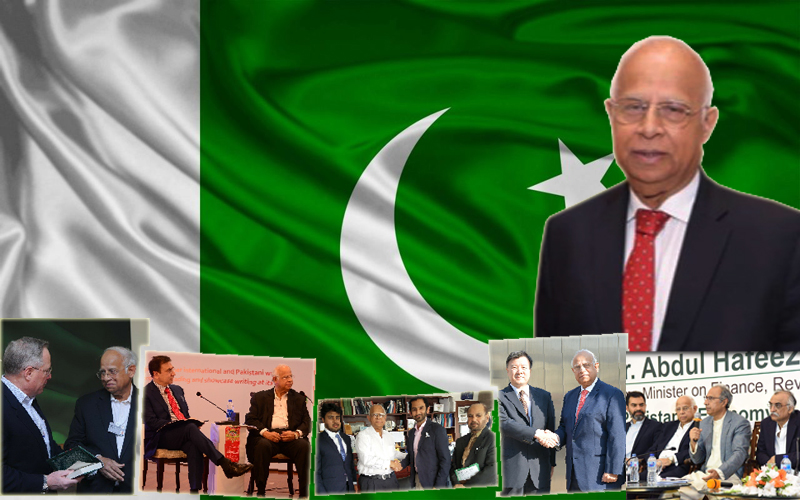At the end of January, the World Economic Forum (WEF) celebrated its 50th anniversary during the Annual Meeting in Davos. Imran Khan participated for the first time in his capacity as Prime Minister of Pakistan and was joined by a delegation of senior government ministers and representatives from business, culture, and civil society.
Much has been written about the Pathfinder Group, who for the better part of two decades has represented the nation’s green and white flag in the Swiss mountains. Ikram Sehgal, like only a few other business voices such as Hussain Dawood, understands that a nation’s image cannot be built overnight. It may very well be destroyed overnight, but creating a positive image takes time and investment. And where else better to do so, than at the WEF Annual Summit in Davos, which convenes over 3000 of the world’s top decision makers?
The Pakistani government has been fairly well represented at the Annual Meetings in Davos. Over the last two decades, top Government representatives, such as Shaukat Aziz, General Pervez Musharraf, Yousaf Raza Gillani, Nawaz Sharif, and Minsters of PPP and PML-N governments have visited WEF. All have used the WEF’s prominent media and global business platforms which provide critical access to international counterparts and leaders of global industry.
Notably, in the same time span, India has only been represented once by the head of the Government, namely Narendra Modi in 2018, nearly 25 years after an Indian PM last visited the WEF. Back then, Pakistan’s image in comparison to India’s was very different. However, the positioning and branding of Pakistan’s neighbor has had an undeniable if not significant impact. Not to overstate the importance of the WEF other international gatherings, conferences and forums matter as well but the Confederation of Indian Industry’s (CII) strategic positioning and pure branding of India was then and remains today exemplary. As an industry body, it has successfully coordinated across relevant ministries in Delhi in order to deliver a single consistently positive message that India is open for business.
Pakistan can and should learn from India’s example. An industry group working in close coordination with Islamabad is just one way to position and brand the country. But what matters most is developing a synchronised way of communicating a message.

Maybe it’s even time for less money to be spent on advertising and instead promote a national business champion which in the long-term could create the same if not even more economic benefit. An investor or business representative who hears PM Khan explain the sheer economic potential of Pakistan might consider doing long term business.
WEF is an ideal place to spread such positive news. Maybe this is different for Pakistan and in its own national media since the country ranks consistently poorly in most of the Forum’s publications, for example the Global Gender Gap or Global Competitiveness reports. Positive news about India on the other hand has been heavily promoted on the Forum’s social media namely on Twitter such as its position as the 5th largest economy, how technology is shaping its workforce, how to tackle unemployment and empower women, scientists discovering ingenious ways to reduce pollution, and facts about India’s constitution being 30 times longer than America’s.
Not word or reflection has been offered on this channel about Kashmir majoritarianism, increased attacks against minorities, or about deadly communal “riots” in the capital of South Asia’s only G-20 country. Be assured, the Forum’s social media channels are not shy to address the latest news, developments or predictions. Stories about coronavirus are currently receiving a lot of “likes” and engagement. But how can one expect a multi-stakeholder organisation to stand up against the harsh realities of a ‘core stakeholder’ (memberships contributions from India are well over 10%, with potential to increase further). What has to be understood and implemented is the importance of positioning purely positive information as this seems to be the real and most effective branding.
Now, would it not make sense, if the mission of an Ikram Sehgal were to raise the flag of the country abroad, promoting a vision in which all stakeholders could contribute? It’s about time for branding the country right. I am convinced, the world deserves such positive news from Pakistan.



